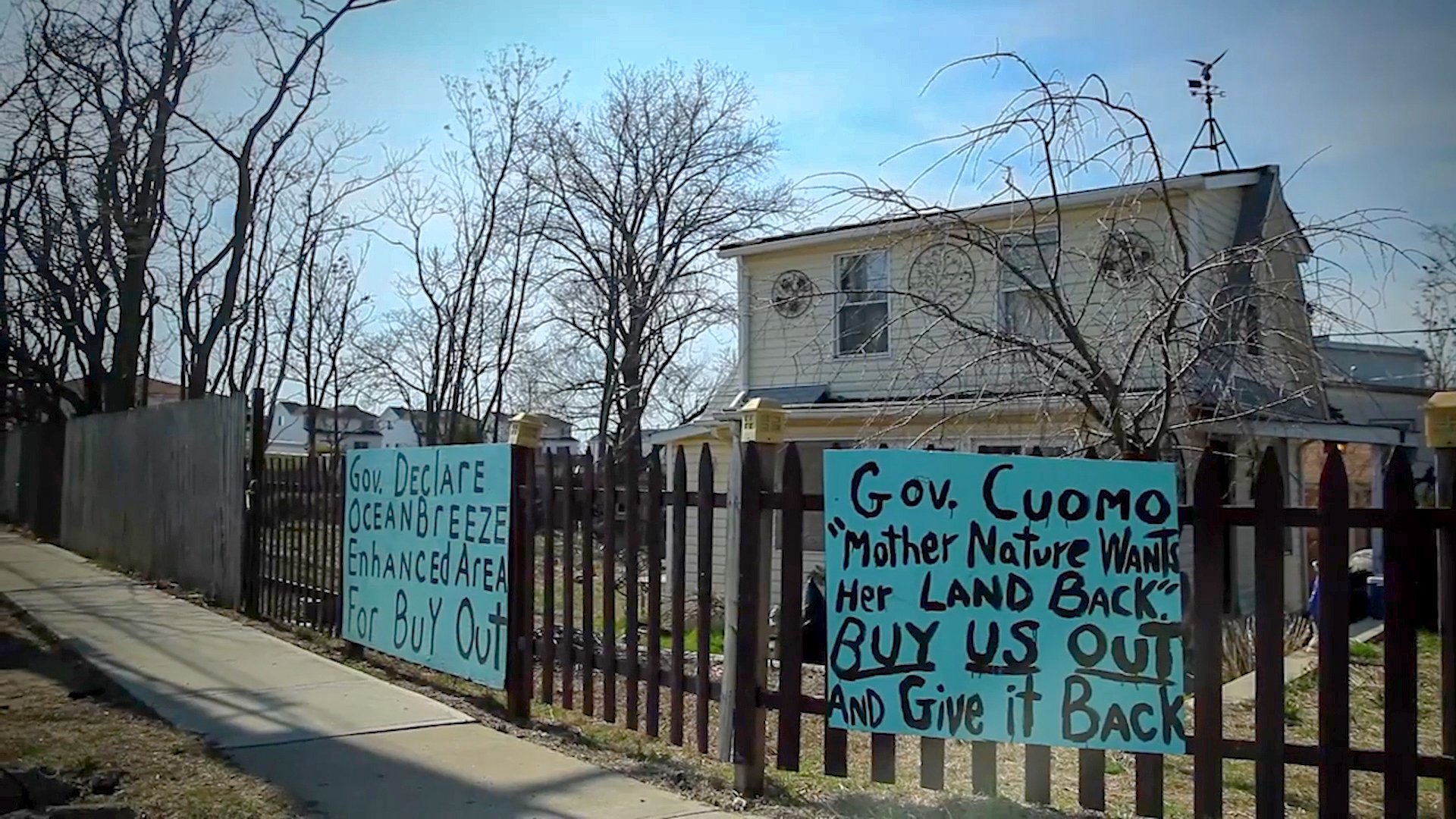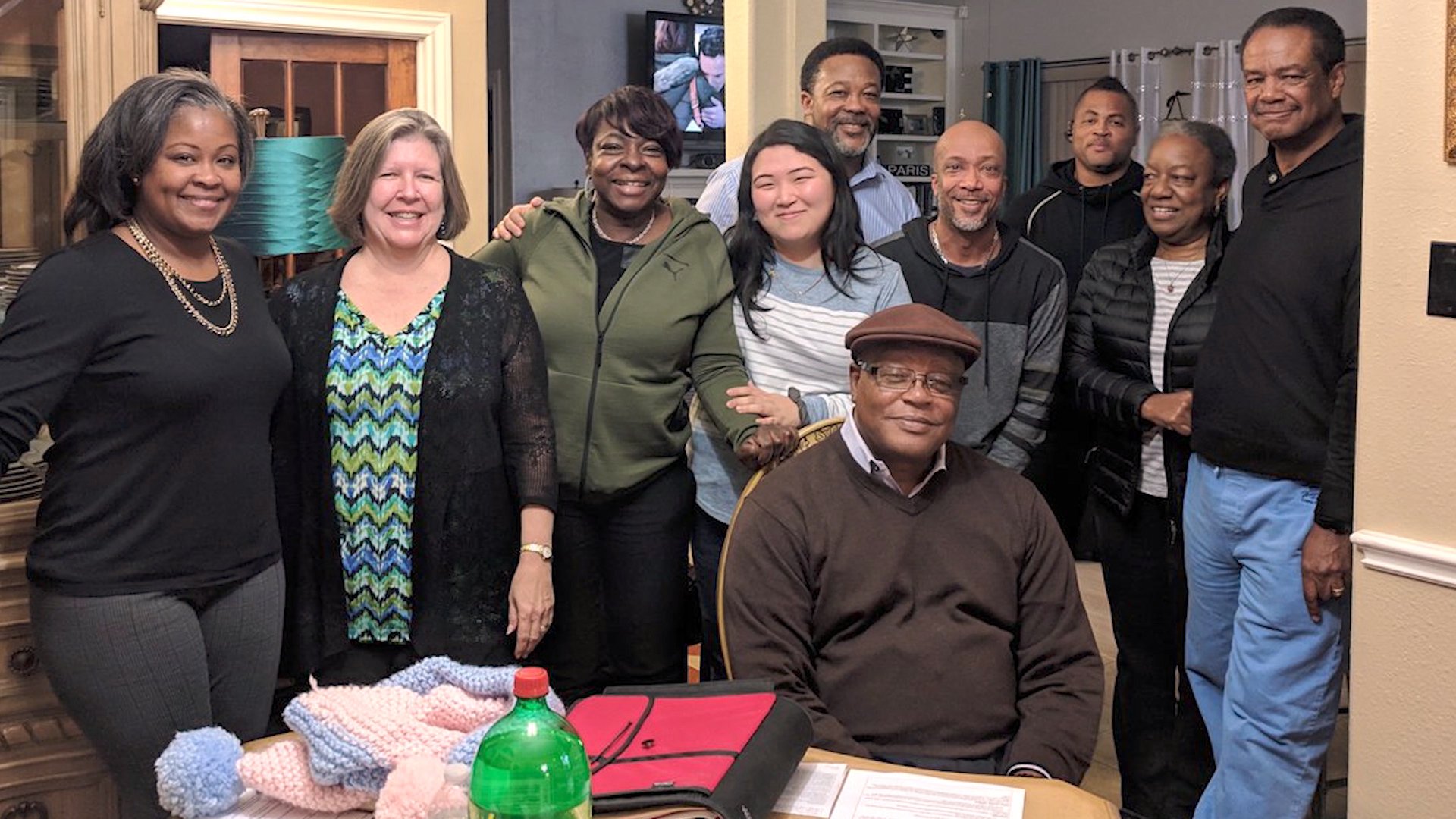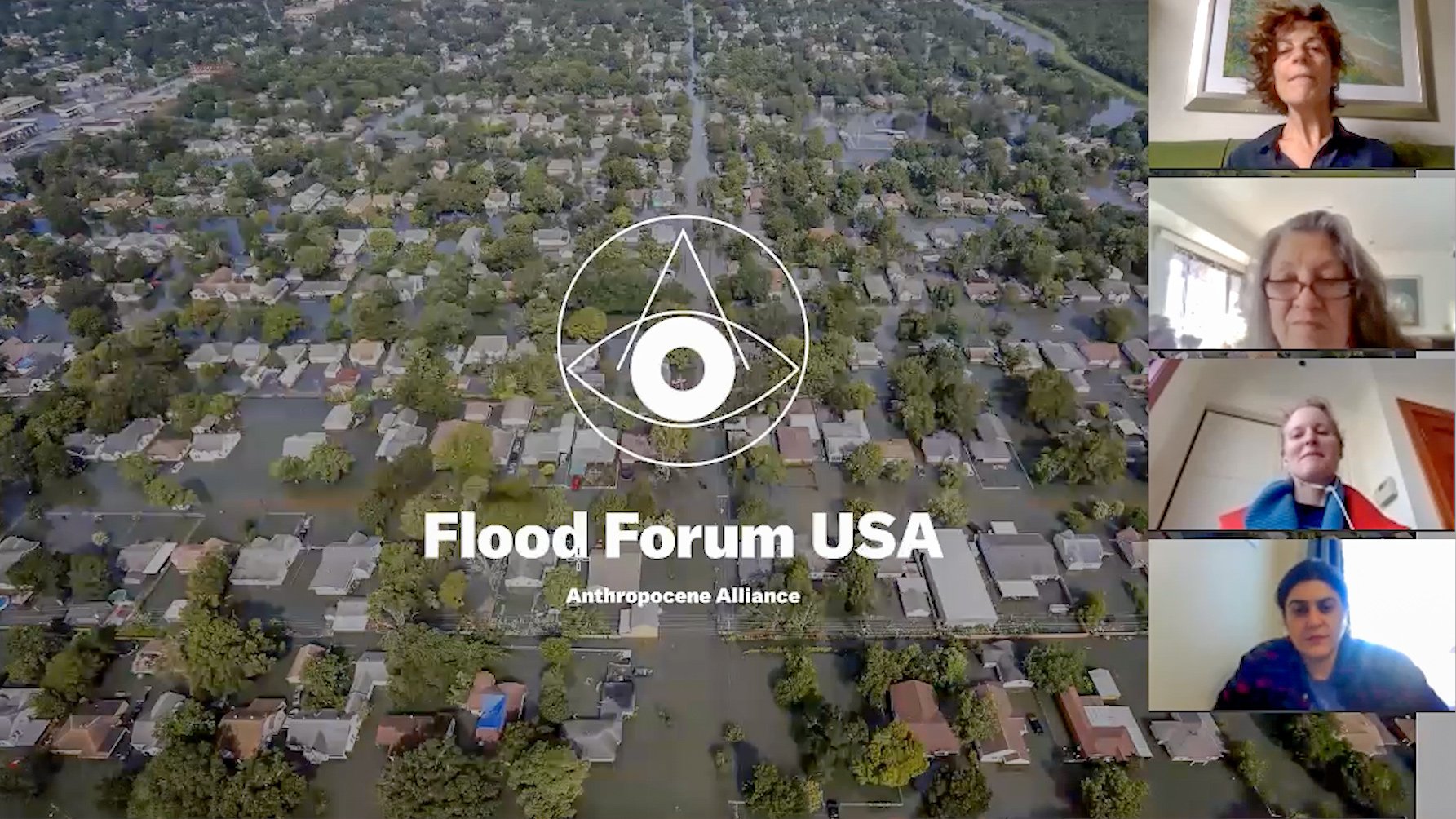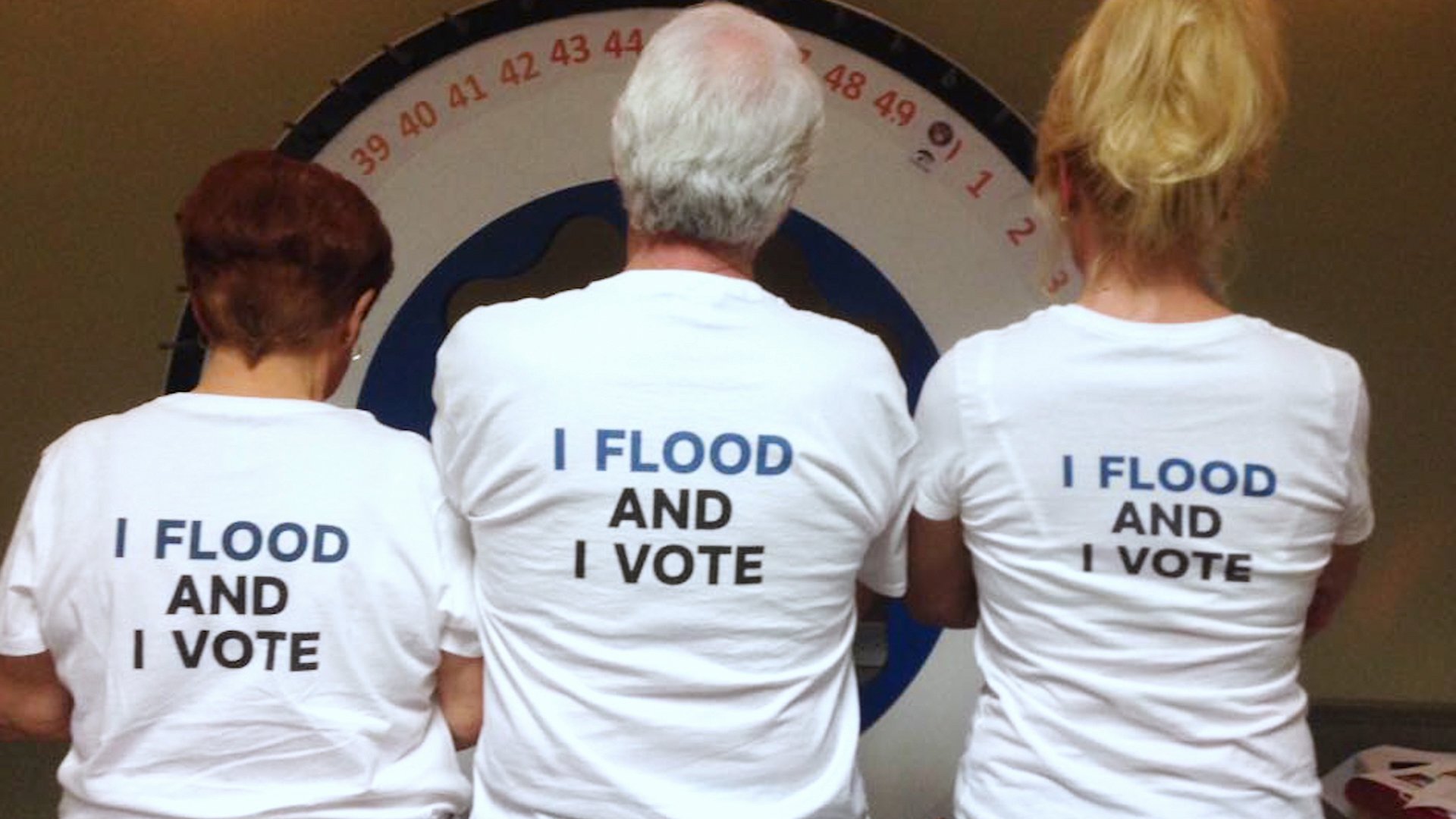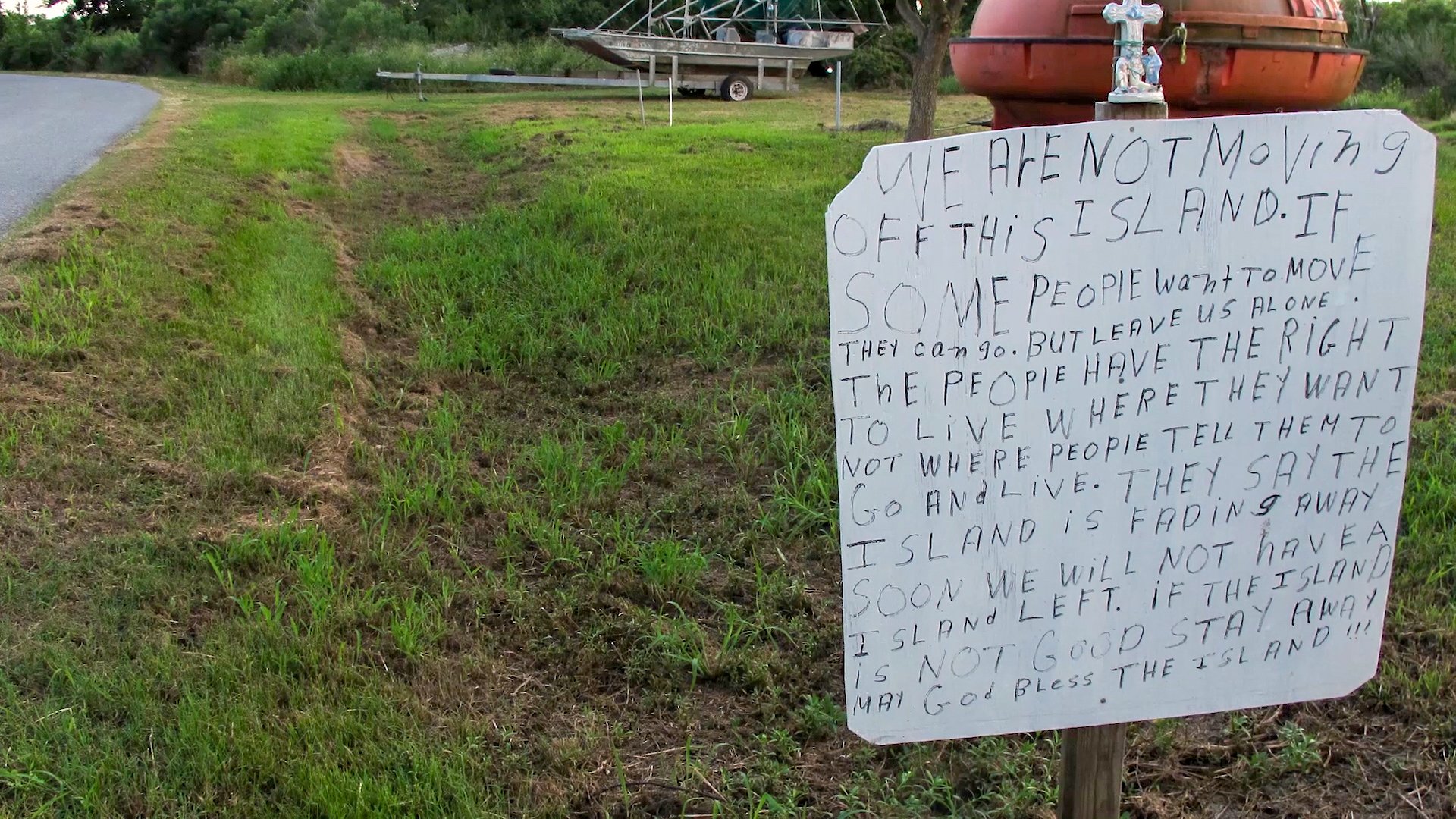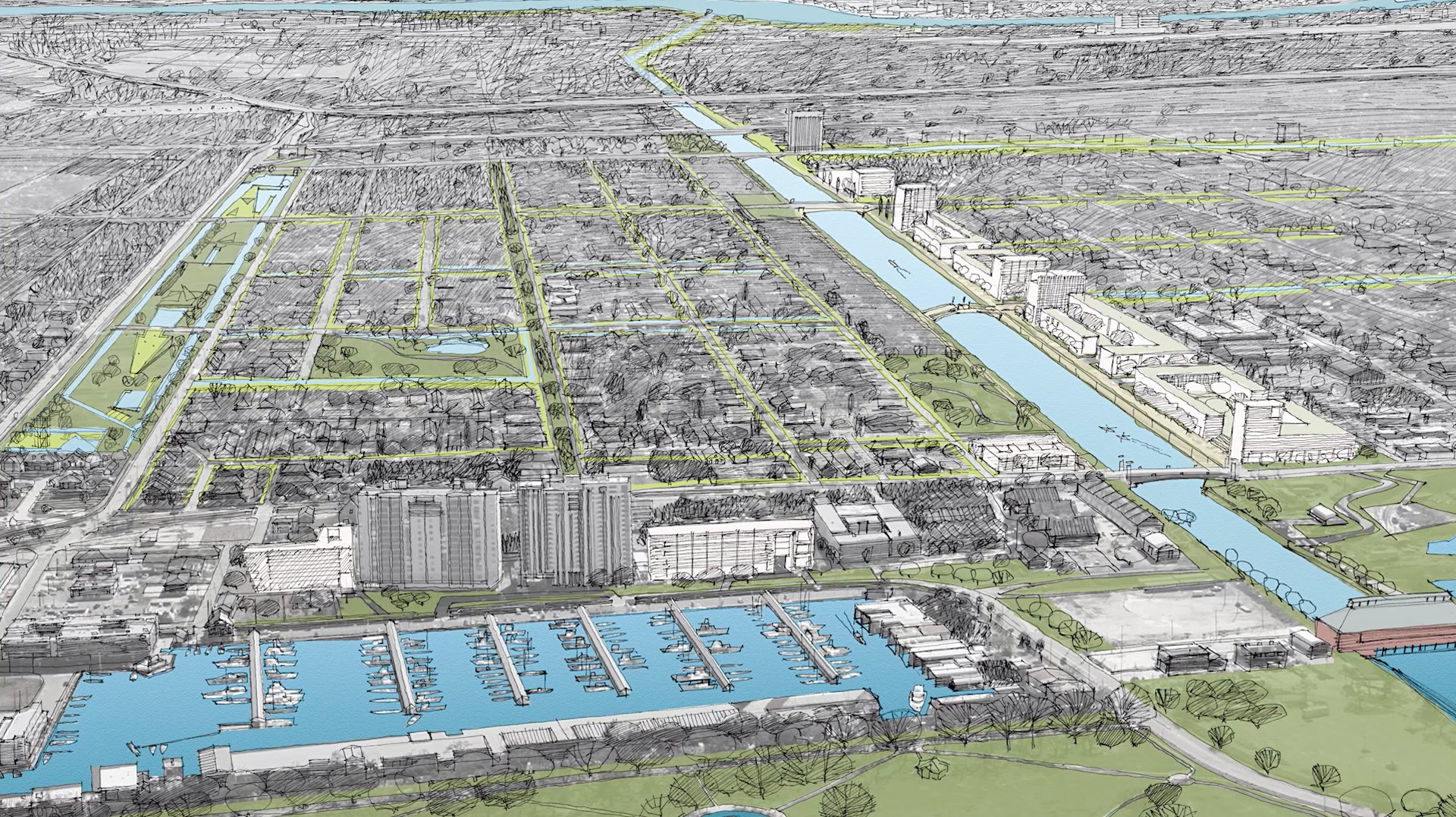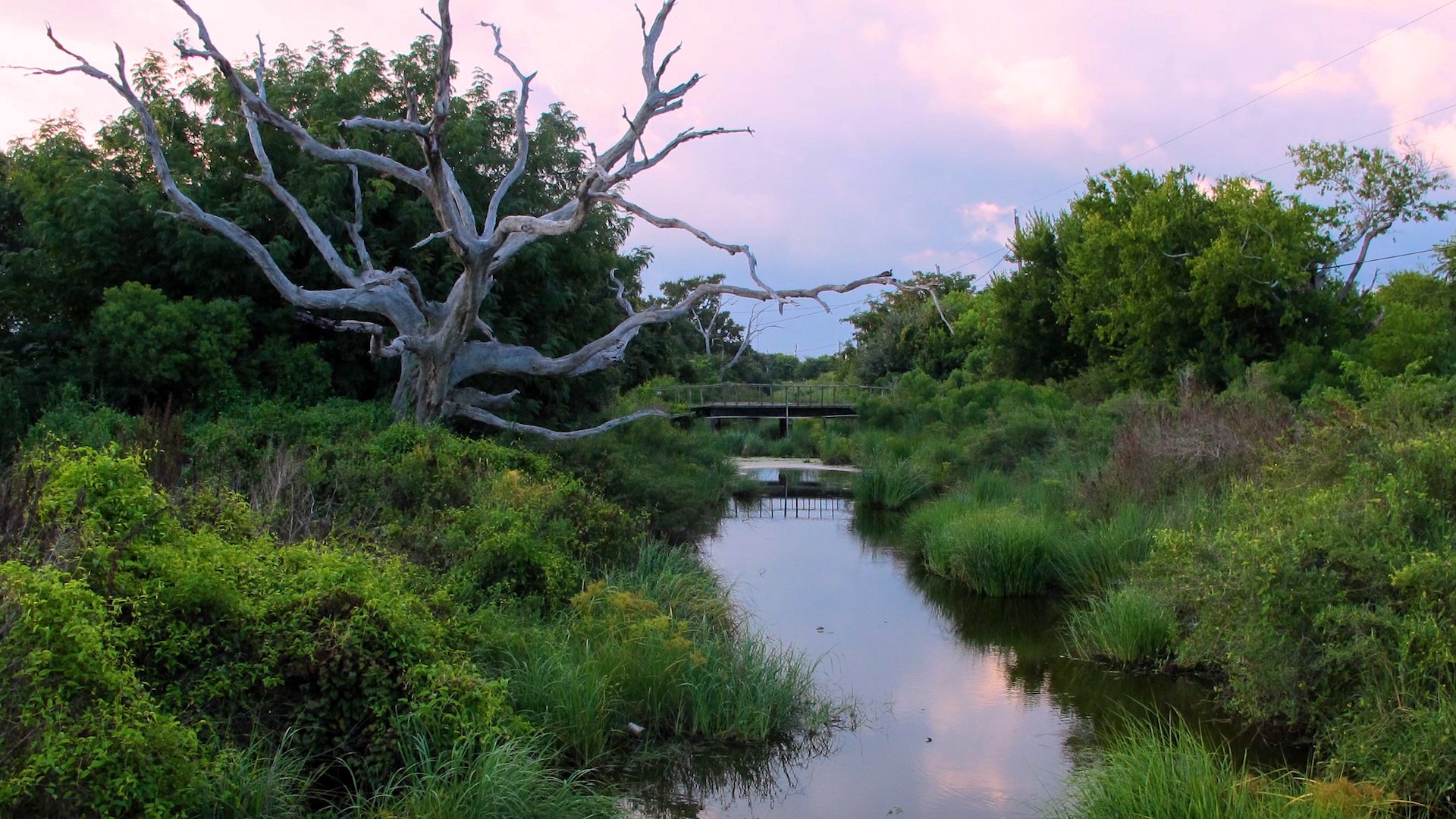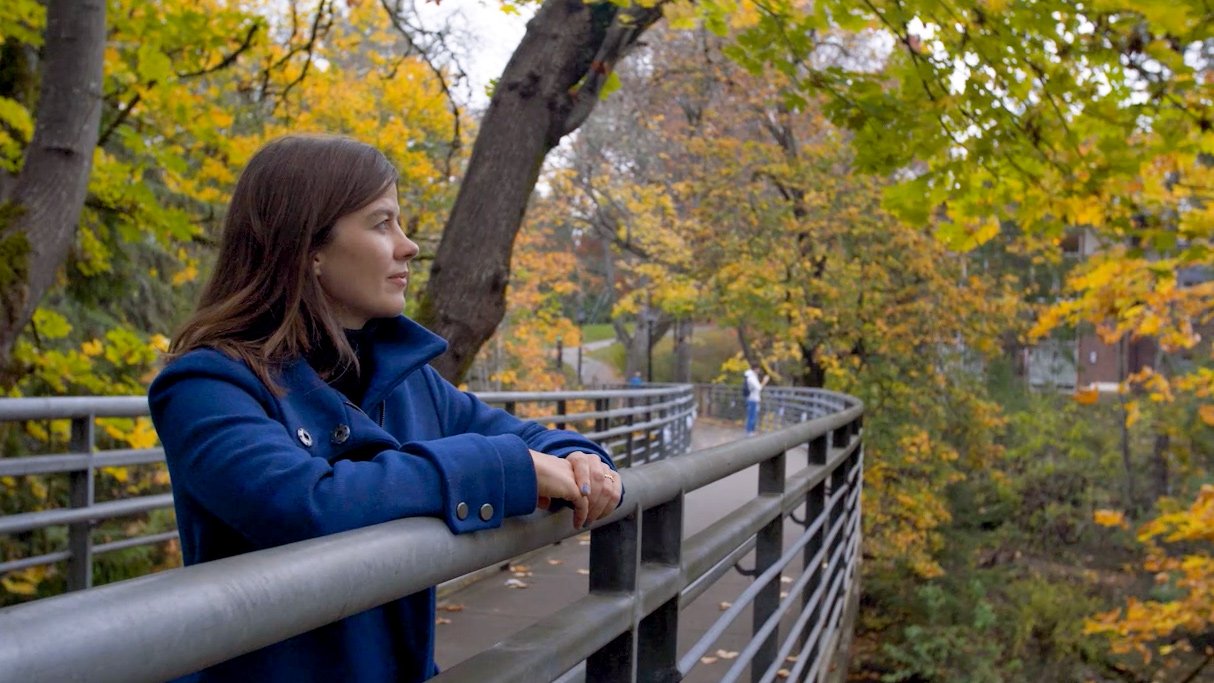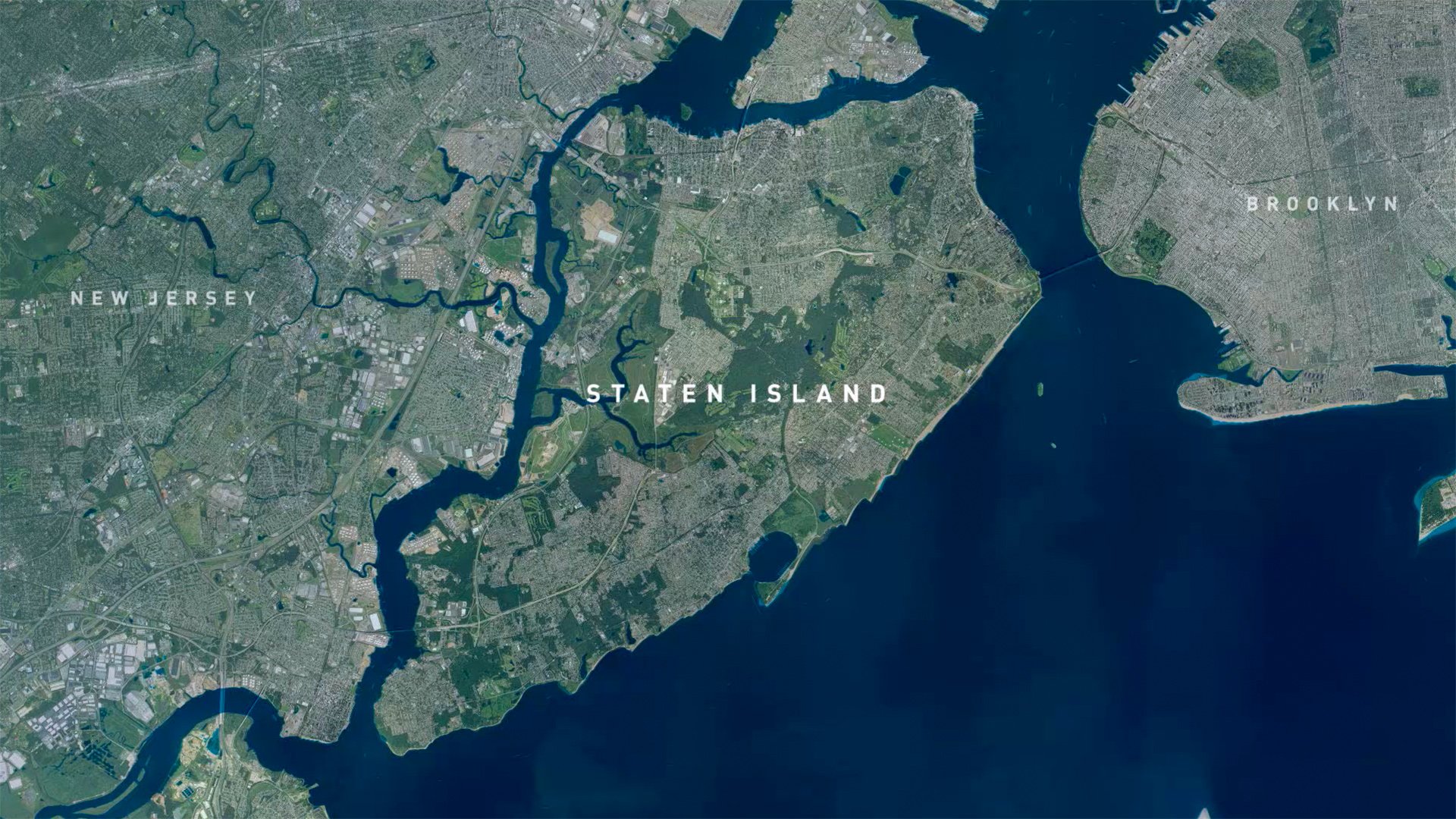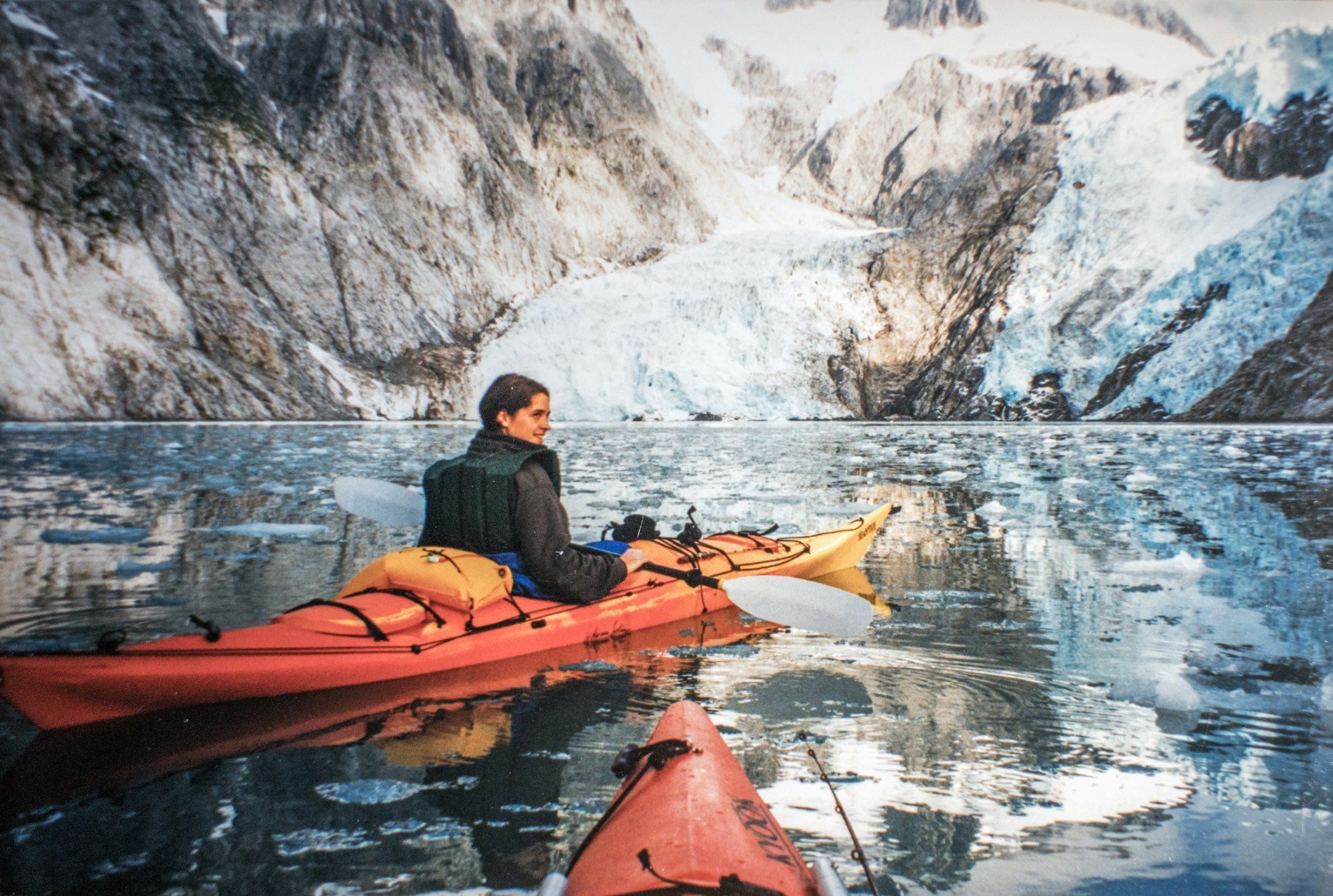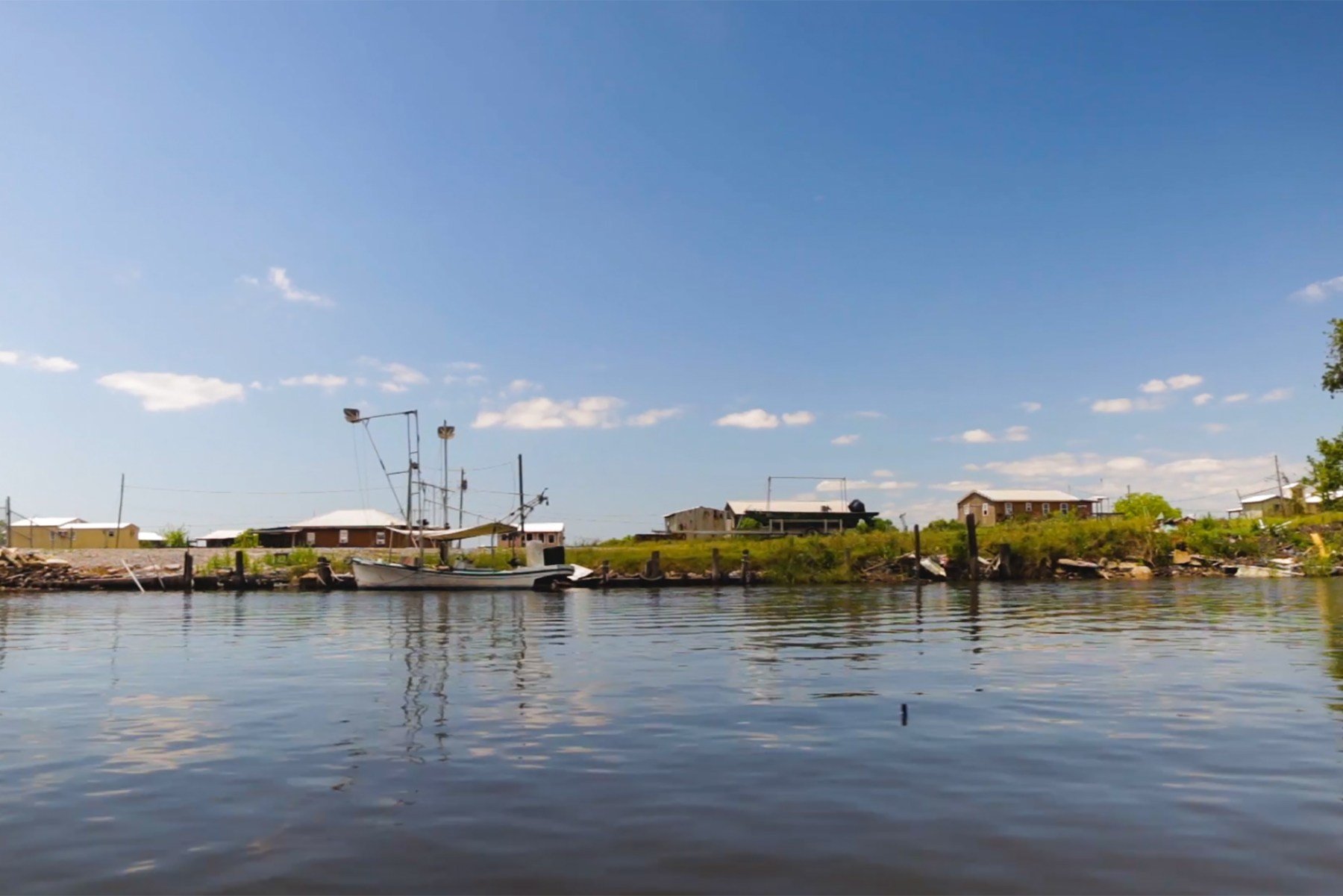
Home or High Water
As sea levels continue to rise, coastal communities are trapped between the reality of climate change and the antiquated political policies that threaten their future.
Battered by stronger, more frequent storms, residents are faced with an impossible decision: rebuild their home in place to collect flood insurance payments or abandon their property—along with any equity they've accrued—and find a way to start again somewhere else.
"Everyone has an individual pathway through that decision about leaving a place you call home," says Elizabeth Rush, author of Rising: Dispatches from the New American Shore, a finalist for the 2019 Pulitzer Prize for General Nonfiction.
In HOME OR HIGH WATER, Rush shares her experience among coastal communities large and small, from the storm-ravaged eastern shore of Staten Island to the disappearing bayous of Louisiana.
The timely, 12-minute film takes the conversation about climate crisis out of the future and into the present, to the practical reality of lives already in the balance. How are communities at risk adapting? What can they teach us about the challenges to come?
Watch the Trailer
Watch Home or High Water
Credits
Produced by Sheepscot Creative
Featuring Elizabeth Rush
Dave Weich—director and screenwriter
Michael Nipper—director of photography and editor
Benna Gottfried—associate producer
Michael Nipper, Scott Ballard, Beau Patrick Coulon, John-Carlo Monti and Therese Mcpherson—camera operators
Derek Rutkai—animator
Jesse Nordhausen—audio tech
Maps and graphics by Paste in Place
Music courtesy of Marmoset
Still photographs by Elizabeth Rush and The Anthropocene Alliance
Supplemental footage courtesy of The Anthropocene Alliance and The Trust for Public Land
Architectural drawings courtesy of Waggonner & Ball
Visit ElizabethRush.net to learn more about RISING.
Director's Statement
“As seas rise, some places can’t be saved,” warns the New York Times. “Even the cities that seem best defended against rising sea levels face the potential of catastrophic flooding,” CNN reports.
One challenge in understanding, or even communicating about sea level rise: the threat is too big for our brains to compute. Our eyes glaze over the impossibly large numbers in projections, the scale of the problem. A house underwater? A neighborhood? A whole city? Our brains go slack.
But Rising: Dispatches from the New American Shore (a finalist for the 2019 Pulitzer Prize in Nonfiction) comes at the subject in terms that readers can handle. Elizabeth Rush insinuates herself among the residents of a disappearing island in the Louisiana Bayou, a beach town on Staten Island flooded by Hurricane Sandy, a neighborhood association in Pensacola, Florida. A local geologist and conservationist introduce her to the rotting coast of Maine. Rising doesn’t shy away from data; it’s just that Rush never lets data divert her attention—or our attention, as readers—away from the people and cultures that over centuries have come to occupy our shores.
In HOME OR HIGH WATER, we focus on two of Rising’s locations: the Isle de Jean Charles in Louisiana; and Oakwood Beach on Staten Island, a short ferry ride from Manhattan. Two radically different communities, thousands of miles apart, whose populations are asking the same existential questions while struggling against self-defeating, life-threatening government policies.
Seas are rising. They will continue to rise. While we still have options, we should be making thoughtful decisions and creating sane, humane policy around a situation that isn’t going away.
After reading her book, I saw that Elizabeth had an upcoming event in Portland. We emailed, and she agreed to an interview. Reed College, where she’d earned a degree in Poetry, let us film in its beautiful library. I wrote the script from pieces of that conversation.
The project wound up being a labor of love for a whole team of Portland-based contributors. Sheepscot Creative, my company, produced the film. Paste in Place designed the maps and graphics pro bono. Marmoset provided licenses to almost all of the music free of charge.
We hope that HOME OR HIGH WATER helps viewers approach the idea of sea level rise in relatable, even actionable terms, much like Rising does for readers.
